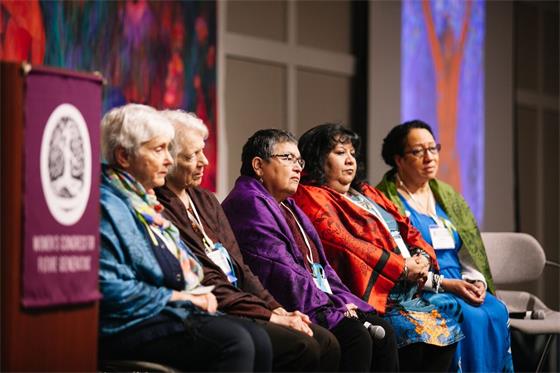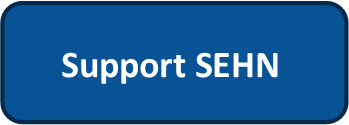November Networker: Will you invest in the essential work of the Science and Environmental Health Network?
|
Will you invest in the essential work of the Science and Environmental Health Network in this dark political and environmental time?
I want to make the case that SEHN is worthy of your investment as we develop and wield the powerful principles that can fundamentally shift policies from propping up the free market to care for the commonwealth and public health. We have an ambitious, long-term, visionary agenda of changing how decisions are made about the health of our children, communities and the Earth.
Ideas and principles shape the world. A few decades ago a single memo commissioned by the U.S. Chamber of Commerce, set the terms of the political debate. The Powell memo asserted that the fundamental premise of the U.S. was the free market and the economy. Out of that memo came a cascade of policies that resulted in trying to shrink government and get it out of the way of the free market. The prevailing view of government was – and continues to be – that government itself is the problem, that the market can solve most problems. This basic premise has been taken up by a lot of think tanks and developed into policies that included deregulation, privatization and all the other policies that eviscerate the basic governmental protections of health and the environment that we need to protect the commons.
SEHN was created to address some of these fundamental challenges and to ask the big questions. We began with “How is science used (or misused!) in environmental policy?” This resulted in a robust body of work on the precautionary principle—the idea that we should take action to prevent harm in the face of scientific uncertainty. In turn, our work on the precautionary principle raised the ethical dimensions of environmental policy and why governments should use the principle.
But we don’t just sit at our desks and write white papers. These ideas have to be practical and useful by people trying to change hospital food policy, stop pesticides from poisoning their communities and block crude oil pipelines.  Grandmothers & Guardians of the Night at the 2017 Women's Congress for Future Generations. (Photo by N. Musinguzi)
Two weeks ago, we held a profound gathering of the Women’s Congress for Future Generations, a major program of SEHN. The Women’s Congress was born out of our work on the precautionary principle and the law of future generations. It brings together the scientific and legal expertise of our team with music, art, and the heart and soul of activists. The Women’s Congress is a seedbed for the ideas pollinated in the struggles of the larger environmental community including the Water Protectors defending the land against crude oil pipelines, or communities facing pesticide drift which exposes people to toxic chemicals and kills their crops, or a neighborhood where the lead paint and pipes of old housing stock poisons children with lead.
The question that SEHN asks is: “What leads governments to permit Dakota Access’ crude oil pipeline, or to approve those toxic pesticides and lead paint?”
If we can change how those decisions are made and make it unthinkable that government would allow poisoning our water, our children, the land, then we have a possibility of restoring and protecting the very things necessary for health, a stable climate and even justice. The environmental movement has been heroic in standing up to these bad decisions. And, we need to do more. This is where SEHN’s unique role is crucial. We support activist campaigns, work in coalitions and reframe the debate with our big-picture thinking on practical ways to prevent harm, protect future generations and promote justice-based policies.
Our work on the precautionary principle, the law of future generations, the ecological framework of health and many other core ideas have changed law and policy from the international level to the local level. We are not finished yet!
This coming year we will be:
At the same time, we will do the bread and butter work of being the on-call lawyer and doctor serving the environmental community. We answer hundreds of calls a year that require research and analysis so that environmentalists can win their campaigns.
We need your support to expand this work in the new year. We have raised 85% of our budget for 2017. Will you help us finish out this year and lay the foundation for 2018? With your help we will continue to serve the larger environmental movement with visionary ideas that can change the public’s understanding of government’s role, as well as the legal and scientific analyses that are the hallmark of SEHN.
Carolyn Raffensperger Executive Director
P.S. We are so grateful for all the support you have given us over these past 20 years. Our work is needed now more than ever. Though the times are dark, the new energy of ordinary people to take up the call to protect what we love is alive and well. We need your help to protect the Earth and future generations.
|
|||
|



 Dakota Access’ crude oil pipeline in Iowa near the Des Moines River (photo by C. Raffensperger)
Dakota Access’ crude oil pipeline in Iowa near the Des Moines River (photo by C. Raffensperger)